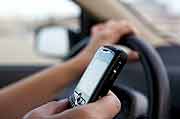
MONDAY, Dec. 10 (HealthDay News) — Using smartphones to coach people as they try to shed extra pounds may make a standard weight-loss program more effective, a new study suggests.
With the technology, patients can report their progress and receive coaching between visits to the clinic. This personalized attention appears to improve results, the researchers reported.
“Having patients record eating and activity on a mobile app that’s monitored by a coach is a scalable, cost-effective way to boost the effectiveness of clinician-directed weight-loss treatment,” said study author Bonnie Spring, a professor of preventive medicine and psychiatry at Northwestern University Feinberg School of Medicine in Chicago.
“An app can give people feedback about how many calories they’re eating, and help them make wise choices in the moment. Knowing that a coach is ‘hovering’ and watching the patient’s behavior is a way of supportively holding the person accountable,” she added.
Taking classes is an efficient way for patients to connect with peers while acquiring knowledge about nutrition, exercise and behavior change strategies, Spring added.
“Reconfiguring weight-loss treatment to systematically leverage clinician expertise, technology and peer support offers a practical and effective way to help the large number of people who need obesity treatment,” she said.
The report was published online Dec. 10 in the Archives of Internal Medicine.
For the study, Spring’s team randomly assigned 69 overweight and obese patients, average age about 58, to a standard weight-loss program or a weight-loss program with smartphone prompting, and followed the volunteers for a year. They were weighed at three, six, nine and 12 months.
At each weigh-in, patients who were coached using smartphones lost an average of 8.6 pounds more than those in the standard weight-loss program, the findings showed.
In addition, about one-third of those in the smartphone program lost at least 5 percent of their body weight when they were only three months into the program, while those in the other group lost nothing during that time period, the researchers found.
These benefits lasted for the entire year, the study authors added.
“Neither the app alone nor the group weight-loss classes was effective for the average patient. The combination of technology and health education was what worked best,” Spring explained.
“This reminds us that few, if any, commercially available weight-loss apps have been tested in rigorous clinical trials, and that technology may work best when it’s integrated into a care system that also provides accountability and support,” Spring added.
Dr. Goutham Rao, the vice chair of family medicine at NorthShore University HealthSystem in Evanston, Ill., and co-author of an accompanying journal editorial, agreed that the smartphone approach seems to work.
“Existing obesity treatments don’t meet certain criteria that are necessary,” he said. “Treatments have to be accessible and inexpensive, and have to be able to engage and re-engage patients over time. There are some promising developments on the horizon.”
Weight-loss drugs aren’t effective enough and aren’t available to large numbers of people, Rao said, and weight-loss surgery is also out of financial reach for most people.
“This technology is something people use on a regular basis; they don’t have to learn how to use it,” he noted.
“The studies we have so far show really promising results,” Rao said. “You can’t be a passive participant in weight loss. Smartphone programs personalize the program,” he pointed out.
“Within three to four years we will have inexpensive, accessible weight-loss technology that everybody can benefit from,” Rao added.
Dr. David Katz, director of the Prevention Research Center at the Yale University School of Medicine, noted that “not much weight loss happens at a clinical visit, of course, weight loss happens in between visits.”
It makes sense to extend coaching and guidance between visits, Katz said. “That, in fact, has been shown before. Using telephones or the Internet to stay connected to patients between counseling sessions enhances weight loss and health improvement,” he added.
“With cellphones all but ubiquitous, we have the technology to build continuous contact into weight-management programs,” Katz said. “This study demonstrates the early benefits of doing so.”
More information
For more on weight-loss programs, visit the U.S. National Heart, Lung, and Blood Institute.

